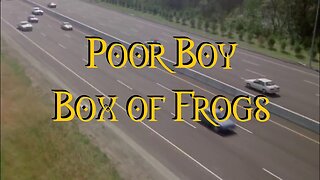Boris Vallejo and Frank Frazetta in Kansas Science Fiction
"Point of Know Return" is a song by the band Kansas written by Steve Walsh (lyrics), Robby Steinhardt, and Phil Ehart (who suggested the album's title, which inspired the lyrics to the song) for their 1977 album Point of Know Return.
It has been re-released on many compilation and live albums, including The Best of Kansas, The Kansas Boxed Set, The Ultimate Kansas, Sail On: The 30th Anniversary Collection, Two for the Show, Live at the Whisky, King Biscuit Flower Hour Presents Kansas, Dust in the Wind, Device, Voice, Drum, and There's Know Place Like Home. Live video performances were also released on Device, Voice, Drum and There's Know Place Like Home. The musical publishing organization BMI presented certifications to the songwriters for over 2 million plays of the song in 2013, as part of the band's 40th anniversary celebration at a concert in Pittsburgh.
Steve Walsh – lead vocals, keyboards Robby Steinhardt – violin, backing vocals Kerry Livgren - guitar Rich Williams – guitar Dave Hope – bass Phil Ehart – drums
James Gunn used the song in his film The Suicide Squad (2021).
"Dust in the Wind" by Kansas and written by band member Kerry Livgren, first released on their 1977 album Point of Know Return.
The song peaked at No. 6 on the Billboard Hot 100 the week of April 22, 1978, making it Kansas's only single to reach the top ten in the US. The 45-rpm single was certified Gold for sales of one million units by the RIAA shortly after the height of its popularity as a hit single. More than 25 years later, the RIAA certified Gold the digital download format of the song, Kansas' only single to be so certified as of September 17, 2008.
The title of the song is a Bible reference, paraphrasing Ecclesiastes:
I reflected on everything that is accomplished by man on earth, and I concluded: everything he has accomplished is futile — like chasing the wind!
A meditation on mortality and the inevitability of death, the lyrical theme bears a striking resemblance to the biblical passages Genesis 3:19 ("...for dust thou art, and unto dust shalt thou return.") and Ecclesiastes 3:20 ("All go to one place. All are from the dust, and to dust all return."). The phrase "dust in the wind" occurs in Psalms 18:43 ("I ground [my enemies] like dust on the face of the wind..."). It is similar to the famous opening lines of the Japanese war epic The Tale of the Heike ("...the mighty fall at last, and they are as dust before the wind.") and from a book of Native American poetry, which includes the line "for all we are is dust in the wind."
Kerry Livgren devised what would be the guitar line for "Dust in the Wind" as a finger exercise for learning fingerpicking. His wife, Vicci, heard what he was doing, remarked that the melody was nice, and encouraged him to write lyrics for it. Livgren was unsure whether his fellow band members would like it, since it was a departure from their signature style. After Kansas had rehearsed all the songs intended for the band's recording sessions of June and July 1976, Livgren played "Dust in the Wind" for his bandmates, who after a moment's "stunned silence" asked: "Kerry, where has this been?" Kansas guitarist Rich Williams would recall that Livgren played his bandmates "a real rough recording of him playing ['Dust in the Wind'] on an old reel to reel. [He] just kind of mumbl[ed] the lyrics, [but] even [hearing it] in that bare form...we said: 'That's our next single.'"
Recorded at Woodland Studios in Nashville, "Dust in the Wind" featured Livgren playing a Martin D-28 acoustic guitar borrowed from Williams: highlighted by the electric violin work of Robby Steinhardt, the track featured Steve Walsh as lead vocalist despite being recorded after Walsh had given his immediately effective resignation to his bandmates (Walsh's 1977 "departure" from Kansas would last a month).
-
 6:02
6:02
Psychological operations
5 months agoPoor Boy Box Of Frogs
332 -
 1:54
1:54
Maicy Renee
1 day agoNights at the Track🩷
106 -
 26:18
26:18
Crypto Crew University
20 hours agoWARNING: EVERYONE IS WRONG ABOUT WHY BITCOIN CRASHING – THIS HAPPENS INSTEAD
743 -
 6:15
6:15
Hack
1 day agoHow to make a mini Hydrogen Generator / TUTORIAL
1721 -
 11:47
11:47
Exploring With Nug
13 hours agoScuba Diving In Huge River Looking For Old Treasures!
811 -
 12:23
12:23
Freakin' Reviews
20 hours agoAre These Viral Drink Containers Worth the Hype?
169 -
 4:49
4:49
JoBlo Horror Originals
20 hours agoMaXXXine Movie Review: Does Ti West's Trilogy End On A High Note?
323 -
 35:08
35:08
World Nomac
1 day agoI visited China's version of Disneyland in Shanghai 🇨🇳
251 -
 3:02
3:02
Paul Joseph Watson
16 hours agoMacron Sends Bizarre Warning
2.01K11 -
 1:04:25
1:04:25
Kimberly Guilfoyle
2 days agoBiden Leaves White House Ahead of Debate, Plus Anti-Semitic LA Violence, Live with Mike Davis & Larry Elder | Ep. 136
137K181